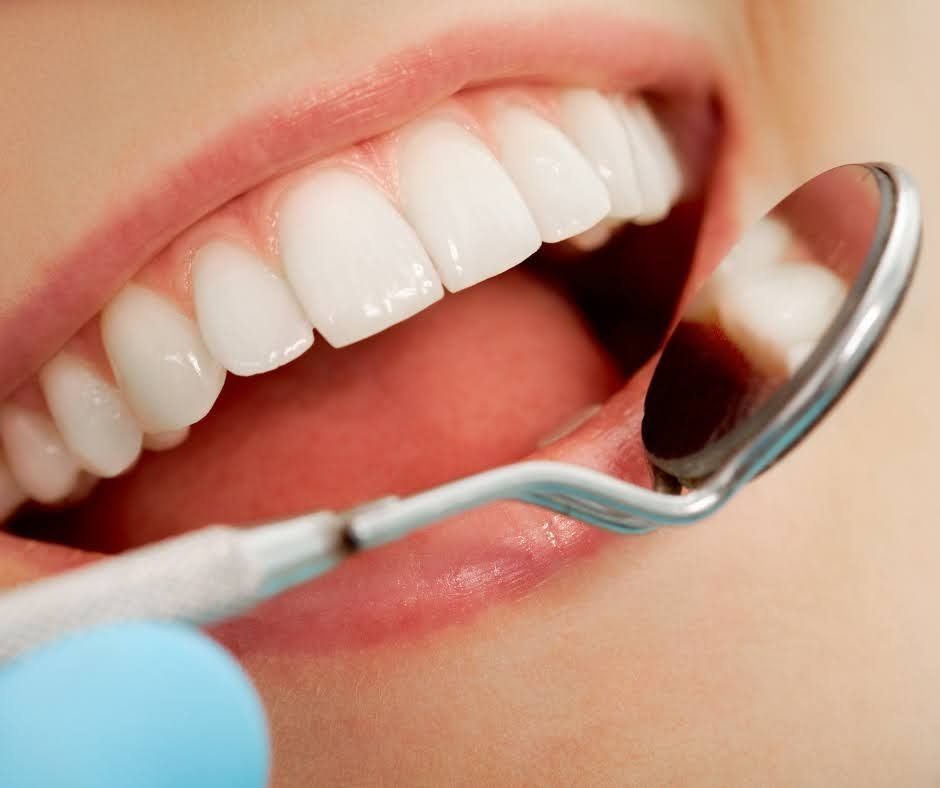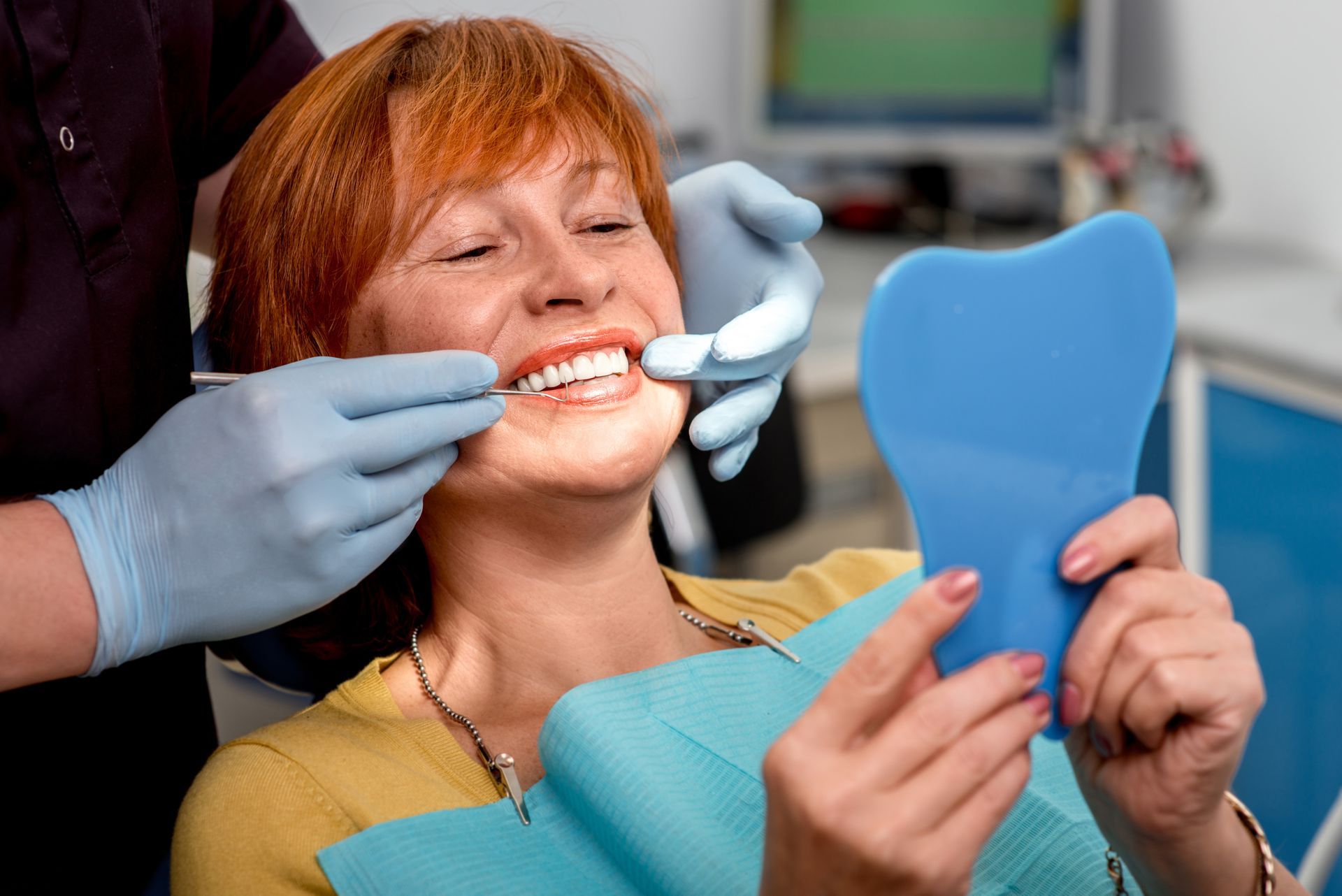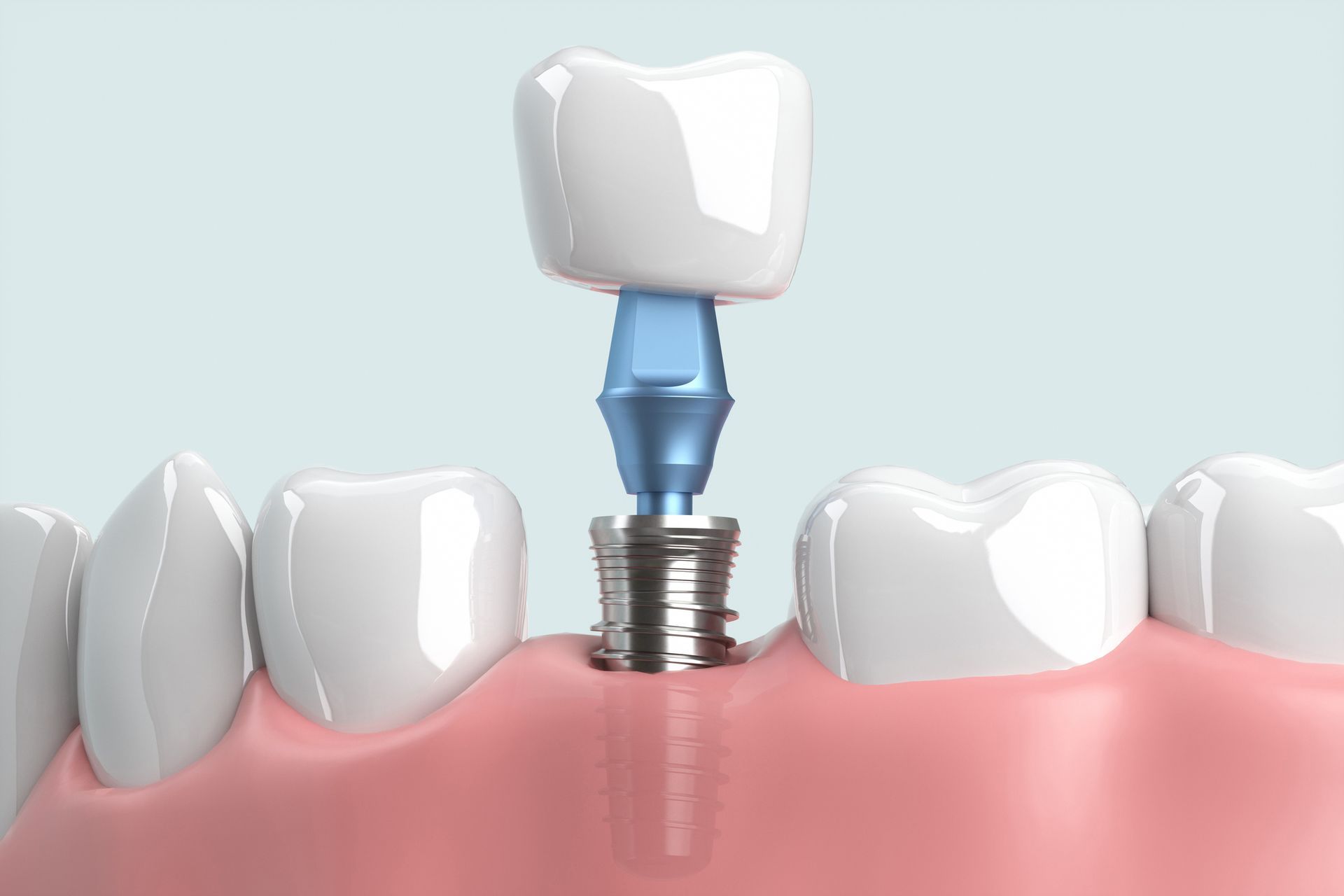Why Regular Dental Cleanings And Exams Are Important
- By Boostability Team
- •
- 21 Mar, 2022

You may be ready and willing to visit the dentist when something hurts, but ideally, you should visit your dentist for regular cleaning and examinations for preventative care. During these visits, your doctor can help you monitor your oral health and prevent future complications. If you would like to know more, check out these five things your dentist does for you during cleanings and exams.
1. Remove Tartar and Clean Teeth
Even if you brush and floss regularly, you may have some tartar hiding at the gum line, between teeth, behind the back teeth, etc. Unlike plaque, tartar can't be brushed away with your toothbrush and toothpaste. Instead, it needs to be manually removed.
Your dentist is the best person to remove this tartar because they can do it without damaging the enamel. For many people, tartar is only removed from the tooth's crown, but if you have severe tartar, you may need scaling and root planing, a process that involves removing tartar from below the gum line and then smoothing the teeth.
2. Monitor Teeth for Signs of Decay
If you neglect to clean your teeth, or you consume a lot of highly sugary or acidic foods and beverages, you have a high risk of tooth decay. Tooth decay occurs when bacteria breaks through the enamel and starts to destroy tooth tissue. As the cavity grows, it continues to destroy more and more tooth tissue, and if it reaches the tooth's pulp, you could develop an infection.
Luckily, cavities usually grow slowly, so as long as you visit your dentist regularly, they should catch them before they get too big. In some cases, your dentist can identify weak spots that may develop cavities, so you can prevent cavities altogether.
3. Examine Gums for Signs of Gum Disease
Besides your teeth, your dentist will also monitor your gums during cleanings and examinations. Gum disease often starts with minor symptoms, so you may not realize your gums are infected until the dentist tells you. It's incredibly important to catch gum disease early because early symptoms can reverse on their own.
For example, minor gum disease may present with tender, bleeding gums and small pockets between the teeth and gums. Treating the infection at this point will usually reverse those symptoms. More advanced gum disease can cause gum loss, severe gum recession, severe gum pockets, bone loss, and much more. These may need surgical treatments to repair even after your gums are no longer infected.
4. Check for Warning Signs of Cancer
Regardless of your oral health, your dentist can also watch for early signs of oral cancer. Oral cancer is more common in people who smoke or abuse alcohol, but other causes include a poor diet, HPV, and family history.
Oral cancer usually presents with swellings, bumps, and discoloration. You may also experience hoarseness, ear pain, swelling in the jaw, and much more. As with any cancer, you want to spot oral cancer early for best results.
5. Spot Underlying Issues
During regular examinations, the dentist will occasionally take dental X-rays. These allow the dentist to see what is going on with your teeth below the gum line. This is a great way to look for issues with unerupted teeth, but it can also give the dentist a great look at the teeth roots to look for signs of infection. X-rays can also help look at impacted teeth or cysts that have developed because of impacted or unerupted teeth.
You should visit the dentist when something is wrong, but preventative care is also incredibly important and often overlooked. With regular visits, your dentist can spot major issues before they become problematic. If you would like to know more, contact us at Bradly Piotrowski, DDS, MSD today.
AREAS WE SERVE
- Alva
- Ave Maria, Florida
- Bonita Springs, Florida
- Cape Coral, Florida
- Estero, Florida
- Fort Myers Beach, Florida
- Goodland, Florida
- Lehigh Acres
- Lely
- Marco Island, Florida
- Naples, Florida
- Saint James City, Florida
- Sanibel Island, Florida
- Vanderbilt Beach, Florida
AREAS WE SERVE
- Alva
- Fort Myers Beach, Florida
- Naples, Florida
- Ave Maria, Florida
- Goodland, Florida
- Saint James City, Florida
- Bonita Springs, Florida
- Lehigh Acres
- Sanibel Island, Florida
- Cape Coral, Florida
- Lely
- Vanderbilt Beach, Florida
- Estero, Florida
- Marco Island, Florida
This web site is not designed to, and does not, provide medical advice. all content ("content"), including text, graphics, images and information available on or through this web site are for general informational purposes only.
The content is not intended to be a substitute for professional medical advice, diagnosis or treatment. Never disregard professional medical advice, or delay in seeking it, because of something you have read on this web site. Never rely on information on this web site in place of seeking professional medical advice.
Bradley Piotrowski, DDS, MSD, LLC is not responsible or liable for any advice, course of treatment, diagnosis or any other information, services or products that you obtain through this site. You are encouraged to confer with your doctor with regard to information contained on or through this web site. After reading articles or other content from this web site, you are encouraged to review the information carefully with your professional healthcare provider.
CONTACT INFORMATION
Address: 1044 Castello Drive, Suite 202, Naples, FL 34103
Phone:
(239) 263-6003
Email: drbradpiotrowski@gmail.com
Business Hours:
- Mon - Thu
- -
- Friday
- Appointment Only
- Sat - Sun
- Closed













